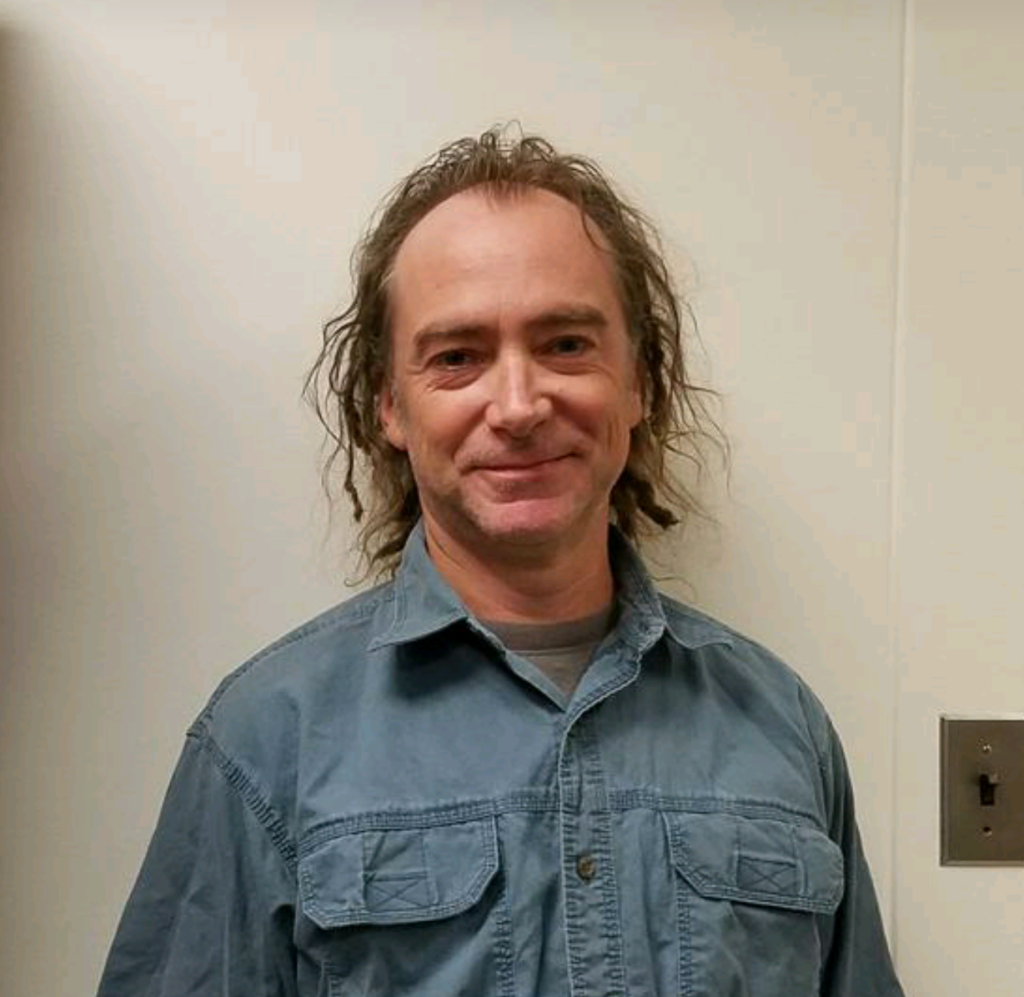SUNY Poly Writing and Communications Center Coordinator (WCC) Dr. Don Moore, WCC students and peers recently presented their work at various event locally and afar.
On April 6, Dr. Moore presented his work titled, “Laboratory Writing and the Roots of the Writing Center,” at the annual Conference on College Composition and Communication (CCCC) in Spokane, WA. Formed in 1949 as part of the National Council of Teachers of English (NCTE), which began in 1911, the CCCC is the largest organization dedicated to writing research, theory, and teaching worldwide with less than 30 percent of proposals accepted for the yearly conference. Don’s presentation distinguishes four eras of writing center development (between 1887 and today) through the lens of Cultural-Historical Activity Theory (CHAT) to study various models from which modern-day writing centers have evolved. Most useful through this historical analysis, however, is how writing center practitioners and writing program administrators may use CHAT to chart new paths for our writing centers and writing programs in our ever-changing and challenging times.
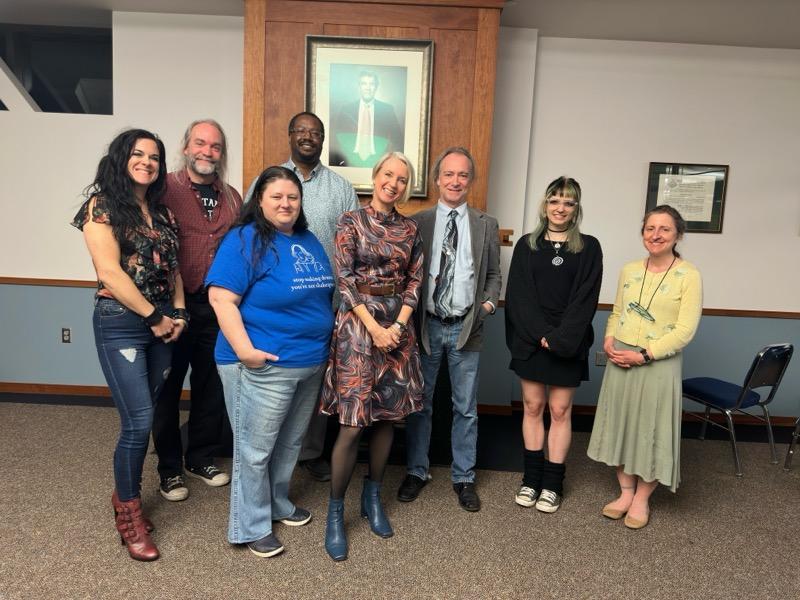
Then on April 12, Maya Brown, a WCC Consultant and student who participated in the WCC Spring Poetry Workshops and Poetry Workshop at SUNY Poly with Poet Laureate Charlotte Pence, was invited to read her poem “I’m Beautiful” at the Women Who Inspire Luncheon. Maya also worked with Poet laureate Charlotte Pence during her recent visit and corresponding poetry workshop at Poly on April 10.
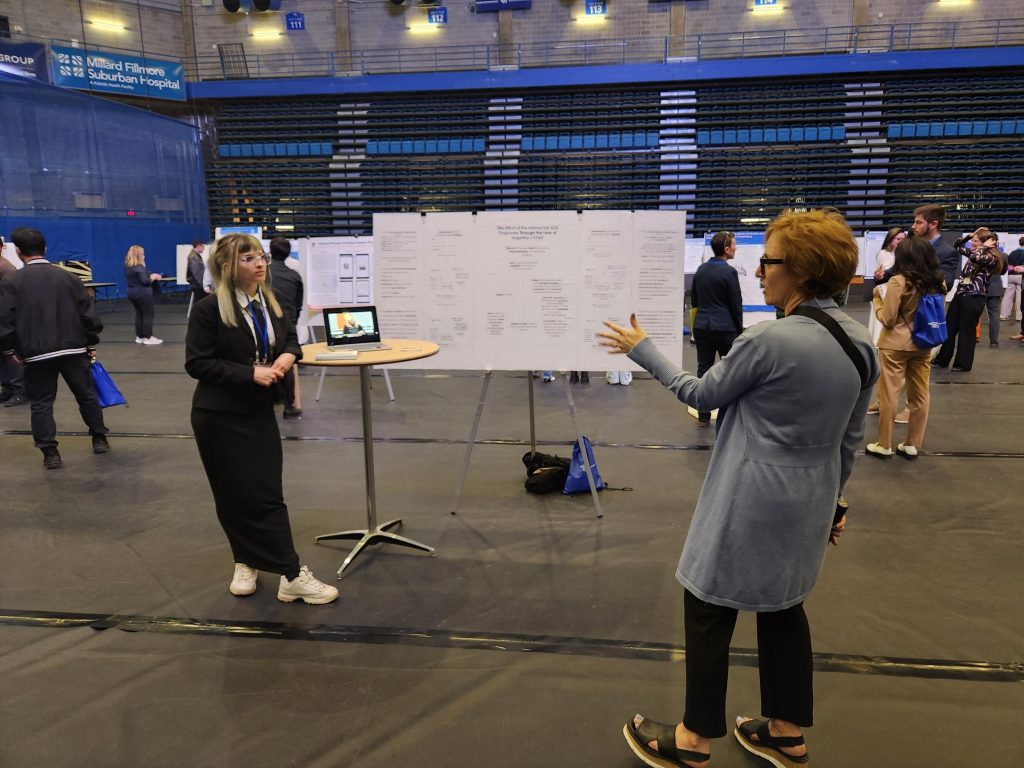
On April 15, Maya Brown and Adelaide McDermott, psychology students in Don’s 308 WID course, presented their research as poster presentations at the SUNY Undergraduate Research Conference in Buffalo. Maya’s presentation, “The Internet’s Effect on ASD Diagnoses Through the Lens of Vygotsky’s CHAT,” looked at the relevant connections between activity and diagnoses of autism while Adelaide’s work, “Effects of Pornography Addiction,” studies how the effects of porn addiction mimic other forms of addiction, thus, concluding intervention may be a key to helping students develop coping skills before addiction becomes an issue. In addition to presenting their work we took in the sights at Niagara Falls!
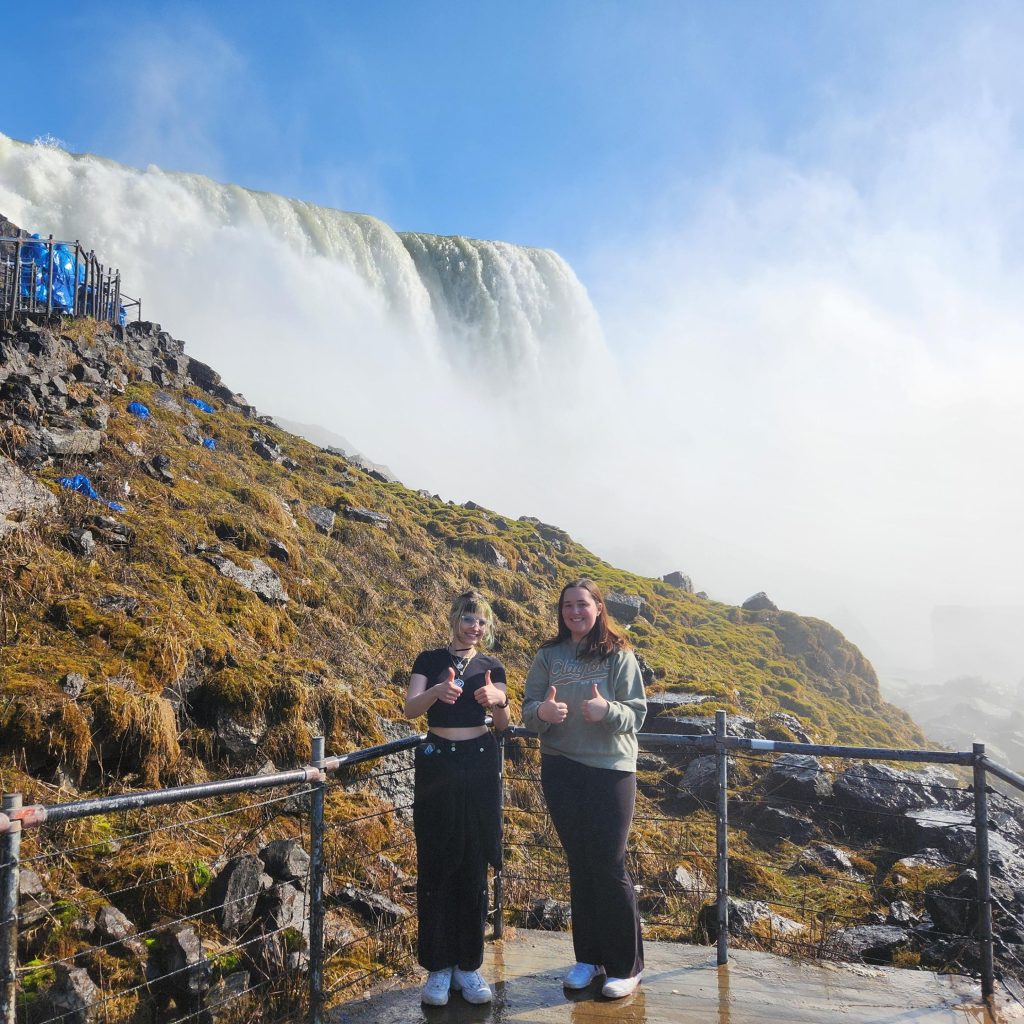
On April 21, Don, Alex Bulson, and WCC Consultant Eliot Szary presented their work, “Embedded Writing Consultants: Our Initial Efforts toward Developing WID Writing Programs at SUNY Poly,” at Cornell University’s Peer Tutoring Conference. This panel discussed their findings after conducting an experimental curriculum design aimed at closing gaps between first-year and upper division student writing at Poly. The presenters’ experimental design, using Writing about Writing and embedded consultants in a laboratory classroom, was developed through collaborative efforts across campus as a way to develop a Writing in the Disciplines approach to teaching writing at SUNY Poly.
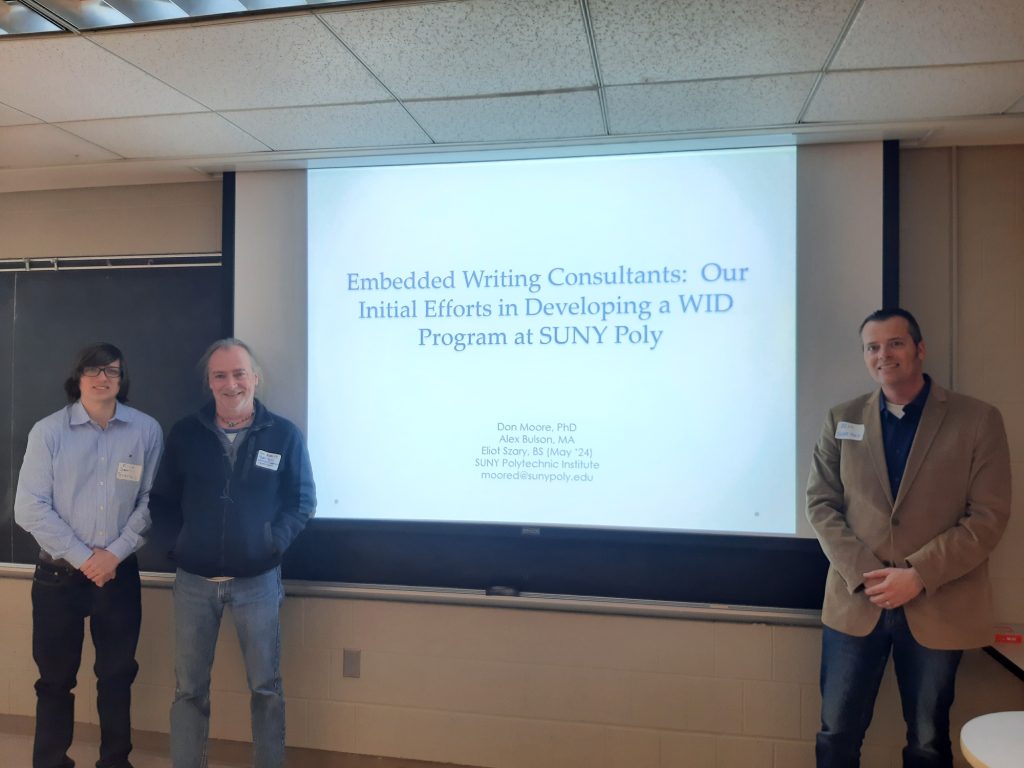
Don and Alex will follow up their Cornell presentation with a presentation at The Conference on Instruction and Technology (CIT) in Buffalo on May 22. This presentation, “Connecting Students and Faculty with Composition Theory: A Writing About Writing (WAW) Study as a Mechanism for Developing a WID Program,” reports on findings from Alex and Don’s study of their pilot WAW course and looks to the future as outcomes from their study foreshadow coursework and Professional Development opportunities that will continue to inform emerging composition practices at Poly.
Don also presented his work, “The Multiliteracy Center and an Evolution of the Writing Center Activity System,” at the International Writing Center’s Association 2023 Conference on October 12, 2023. This work envisions the Multiliteracy Center (MLC) through the framework of Cultural Historical Activity Theory (CHAT) as a way to help writing center practitioners move into the future of the MLC as practitioners look to build a self-sustaining community rich in professional development and individual, instructional, and programmatic growth opportunities. With its application of CHAT, this presentation explores specific historical conditions of writing center activity that has transformed writing center realities according to the laws of its own perfection.
